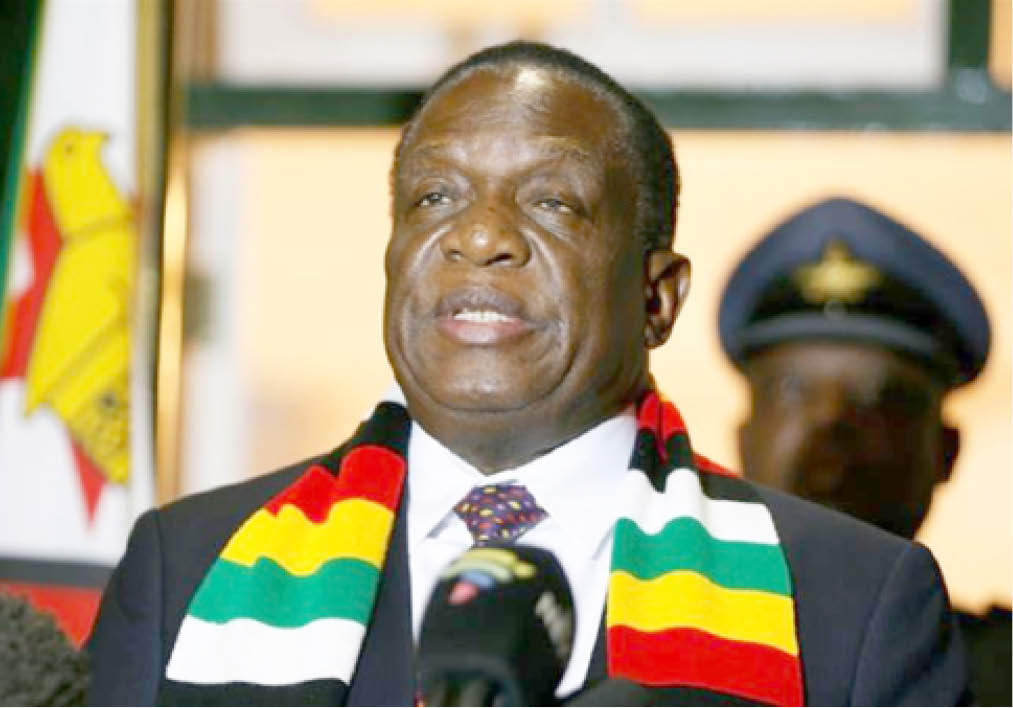Zimbabwean President, Emmerson Mnangagwa, was inaugurated on Monday, September 4, in Harare for his second term in office. Mnangagwa took over from longtime leader Robert Mugabe, after the 2017 military coup. Mugabe ruled the country from independence in 1980, after a long guerrilla war.
The inauguration of Mnangagwa came so quickly because Nelson Chamisa, the 45-year-old lawyer and a pastor and leader of Zimbabwe’s main opposition party, the Citizens Coalition for Change (CCC), failed to file papers in the country’s apex court to challenge the Zimbabwe African National Union-Patriotic Front (ZANU-PF) leader’s re-election in polls that were condemned by the opposition, regional and international observers.
Chamisa did not lodge a court challenge against President Mnangagwa’s re-election on 23-24 August, arguing that Zimbabwe’s courts have been “captured” by Mnangagwa and ZANU-PF. By not contesting the outcome in court, according to Zimbabwe’s laws, Mnangagwa is president for the next five years and it will be difficult for any legal process to remove him from power.
The Zimbabwe Electoral Commission (ZEC) had declared Mnangagwa winner of the presidential vote with 52.6% while Chamisa got 44% of the total votes cast. The remaining votes were split among other smaller parties. ZANU-PF was also declared the winner in the parliamentary race, securing 136 of the 210 seats. CCC got 73 seats.
Chigumba said 80-year-old Mnangagwa won more than 2.3 million votes, while 45-year-old Chamisa had more than 1.9 million. By securing more than half the votes cast, the president avoided a run-off. Voter turnout was 69 per cent.
Opposition CCC spokesperson, Promise Mkwananzi, in explaining why his party shunned the courts, said: “We are following the political and diplomatic route to bring pressure to bear on Mr Mnangagwa and his FAZ (Forever Associates of Zimbabwe) to concede that there was no election and cooperate in line with SADC guidelines to bring forth a fresh, free and fair election.
“We count on the help of and support of SADC, AU (African Union) and the international community to help facilitate the process of bringing forth a fresh, free and fair election.
“Our political and diplomatic processes are now in full swing; the region is being engaged, the citizens are being consulted, change is coming.”
The South African Development Community (SADC) election observation mission to Zimbabwe’s Harmonised Elections published a joint preliminary statement saying, “While there is a general consensus that the country was calm and peaceful’’, concluded that “The Harmonised Elections fell short of the requirements of the constitution of Zimbabwe, the Electoral Act and the SADC Principles and Guidelines Governing Democratic Elections (2021).
But this newspaper sees the opposition CCC decision not to go ahead with court challenge against the election as courageous, even after the party labeled it as a “gigantic fraud.” We, therefore, implore them to go a step more and avoid all forms of violence as it pursues what it called the enthronement of “fresh, free and fair elections” in Zimbabwe.
Already, the mention of mass protests has made President Mnangagwa to announce that security forces are prepared to crush any uprisings and jail those holding protests. This threat is ominous as there has been no love lost between the opposition and the government.
The Zimbabwean government should not just overlook the alleged shortcomings of the elections, including voting delays, issues with the voter roll, ban on opposition rallies, biased state media coverage, voter suppression and the position of foreign poll monitors who surmised that the elections failed to meet regional and international standards. They should work to improve the electoral process.
The government cannot pretend not to see the citizens’ hunger for change after over four decades of ZANU-PF rule. It is real and the people are seeking for that positive change in Mnangagwa, even though he was a key member of Mugabe’s government from independence, holding key positions, including Minister of State Security, Minister of Justice and Vice President. Towards this, what the country needs urgently is a national consensus on how to implement key democratic and electoral reforms that would guarantee more transparent elections and good governance.
And South Africa’s President Cyril Ramaphosa and his Mozambican counterpart, Filipe Nyusi, who both attended the inauguration of President Mnangagwa, should lead a regional push for such consensus. Using the South African regional group, Southern African Development Community (SADC), they should intervene and lead the process of ensuring lasting peace and stability in the country through building of domestic consensus. On no account should Zimbabwe be allowed to slide into crisis.
More importantly, the president should focus on rebuilding the economy. Zimbabwe used to be a regional economic powerhouse before the crisis of the Mugabe years in power led to its collapse. It is still mired in the aftershocks when hyperinflation wiped out savings and deterred investment, leaving a wave of discontent among citizens facing continued corruption, high inflation, unemployment and entrenched poverty.
Like other African countries, Zimbabwe has a huge youth and restless demography, with at least 62% of the population under 25 years. The economy must find jobs for its many young graduates.
All democrats in the country must rise up. Zimbabwe needs a culture of enhanced free and fair elections and good governance.

 Join Daily Trust WhatsApp Community For Quick Access To News and Happenings Around You.
Join Daily Trust WhatsApp Community For Quick Access To News and Happenings Around You.


